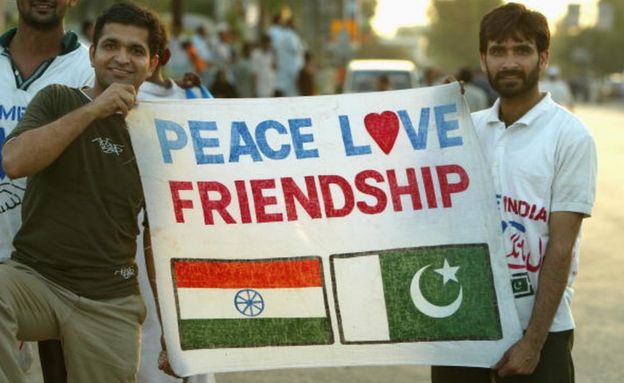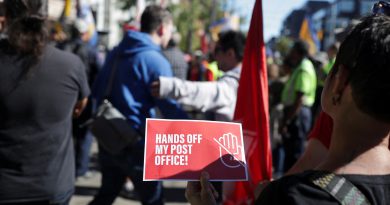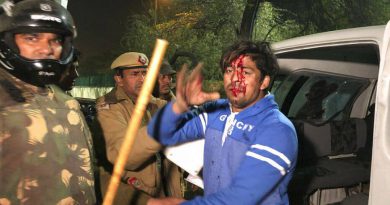Ordinary Pakistanis love Indians and crave for peace with India
by Sruthijit KK
Why are Indians on social media so hateful towards Pakistanis? I try to talk with them because I’m so fond of India.
The first-time Indian visitor to Pakistan is more likely to be struck by our similarities than differences. The dusty plains of rural Punjab are the same on both sides, complete with crop burning. Lahore looks no different from any major north Indian city. The old city, with its maze of by-lanes, motorcyclists grazing your elbow and little children narrowly avoiding falling into drains, will instantly remind you of Lucknow or Chandni Chowk. In nursing internecine jealousies — Lahore people think of Karachi as a city with little space and too much petty crime, while Karachi folks think Lahore doesn’t do food well — they aren’t unlike us, either.
This correspondent was part of a group of Indian journalists invited by the government of Pakistan to cover the opening of the Kartarpur pilgrimage corridor. The security detail was significant. Our Lahore hotel, located on MM Alam Road — named after a fighter pilot and hero of the 1965 war with India — was swarming with security personnel. Vehicles with armed men and blazing sirens escorted our bus. Unless you are used to it, this kind of security can be a bit unnerving. It can feel like attention is being drawn to you, the swirl of red and blue lights marking you out as a target.
Pakistan does security a little differently from India. Not for them the commandos in safari suits or plainclothes. It’s all assault weapons, aviators and army fatigue. The idea is to secure, but also to dissuade with the display of force. When you drive through the cities, the horrors of the past come alive. As we pulled into the Islamabad Marriot, which was bombed in 2009, a fellow journalist who was posted in the city at the time, reminisced about how the explosion had blown away all the trees on that street. Driving around Lahore, a friend pointed out the spot near the Gaddafi stadium where the bus carrying the Sri Lankan cricket team was attacked, also in 2009. Between all the visible security, the passing landmarks of terror and the somewhat serious-looking men hanging about that you suspect are intelligence operatives, you are periodically reminded that while everything seems absolutely normal and well, you are indeed in one of the world’s most dangerous countries.
Hardliners in Politics
The big domestic news of the week we were visiting was the crackdown on Tehreek-i-Labbaik Pakistan (TLP) and its chief Khadim Hussain Rizvi, a preacher of the Barelvi sect who has attracted a massive following in recent years campaigning in favour of the country’s Blasphemy Law.
TLP enjoys massive street support and is able to bring entire cities to a standstill with its protests, sitins and street violence. But Pakistanis who happily come out on to the streets to support the call of some preacher or another don’t seem to like voting for them very much. Overall, the vote share of the religious-political parties declined in this year’s general election. Parties thought to have links with militant groups — the Ahle Sunnat Wal Jammat and Hafeez Sayeed’s Allah-o-Akbar Tehreek — failed to make a dent electorally. Rizvi’s TLP won only two seats despite fielding more than 150 candidates. But it has become Pakistan’s fifth largest party in vote share, within two years of founding.
Imran Khan has now slapped the preacher with charges of sedition and terrorism.
‘Why Do You Hate Us?’
It’s a bit of a cliché by now that Indian visitors to Pakistan experience great hospitality, discounts in shops and the warmth of ordinary Pakistanis. Every bit of this remains true and every Pakistani I spoke with said they longed for peace with India. But thanks to social media, some things might be changing.
At the lobby of the Marriot Hotel in Islamabad, I meet a group of three friends — fashion designer Mian Nauman and his friends Shabeeh Zehra and Neelum Nawaz.
All three had India connections. Nauman’s mother was born in Ludhiana. Zehra’s great grandmother was born in Delhi and married a Hindu. At the time of partition, the husband stayed back, and her great grandmother’s family moved to Pakistan, along with her and an infant child. Nawaz is a major Bollywood fan.
We discuss Imran Khan, local politics and India. Nauman says Khan is the first politician in a long time he is able to relate with. “I could not even understand Nawaz Sharif’s speeches. Imran speaks like regular people. He’s not a politician. And may be that’s a great thing,” he says.
When I try to ask Zehra a question, she asks gently if she could ask me a question first. “Why are Indians on social media so hateful towards Pakistanis? I try to talk with them because I’m so fond of India–my roots are from there. But they become so abusive when they know I’m from Pakistan,” she says, looking genuinely pained. I don’t have a good answer.
The group is joined by the person they were waiting for — an older, impeccably dressed lady named Ayesha Shamsi. When I introduce myself, she says she lived in Delhi for three years. How come? “Oh because my husband woke up one morning and decided he was gonna take a job as the ambassador to India,” she said, laughing. Her husband Saeed Mohammad al Shamsi is an emirati lawyer and diplomat who served as UAE’s ambassador to India between 2001 and 2004. She said she loved every moment of living in India and desired very deeply to see peace between the two nations.
In Lahore’s Gulberg II neighbourhood, I stop at a small shop to recharge my phone. I ask the small group inside and the shopkeeper what they thought of Imran Khan’s statement that there should be peace between India and Pakistan. After some murmurs, the group seemed to nominate the shopkeeper, Imran Niazi, to speak for them.
Niazi turns out to be something of a hardliner for peace between the two countries. “There should be no border. We are the same people,” he says, speaking eloquently about how great it would be for both countries should there be peace. But, he says, these days Muslims are being treated very badly in India. We watch those videos on Whatsapp. And that’s very unfortunate. But he also watched another video, he says, of people in India being offered money to burn the Pakistani flag. “One or two people did it, but you know, most people said no matter how much money you offer, we won’t burn the flag. That was really nice.”
Article first published on EconomicTimes.
Sruthijit KK is a former editor of HuffingtonPost India.



